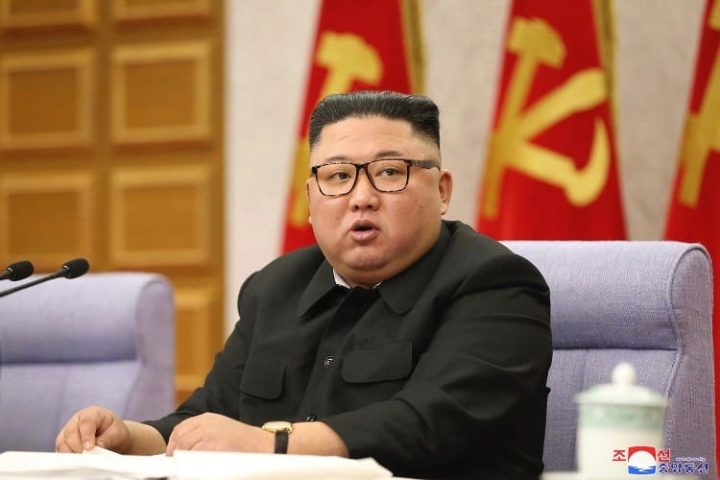
Kim Jong-un, the supreme leader of North Korea, last week called for “urgent action” from his underlings on the issue of climate change. Kim, who is also the general secretary of the Workers Party of Korea (WPK), made the remarks on September 2 at a meeting of his country’s Politburo.
Kim ordered party operatives to initiate programs intended to attack the effects of the “abnormal climate” in his country, including river improvements, reforestation efforts to stop soil erosion, dyke maintenance, and tide embankment projects. Kim said he expects these new initiatives to be a prominent part of the nation’s current five-year-plan.
In 2020, North Korea struggled with drought, followed by flooding and typhoons, causing poor harvests for the communist nation. Five typhoons hit the Korean Peninsula in 2020, with three storms in rapid succession all hitting North Korea in August and September of last year.
This year, several weeks of drought followed by a period of heavy monsoon rains last month in Hamgyong Province destroyed hundreds of acres of farmland and washed away several bridges. The heavy rains of the last two years are expected to negatively affect the food harvest in the already malnourished nation.
A largely mountainous country, North Korea suffers from a shortage of suitable agricultural land.
Kim claimed that “danger” from climate change was increasing and that “disastrous weather is getting ever more pronounced worldwide.”
“Our country is also lying vulnerable to its danger,” Kim said.
In addition to those weather problems, a complete border shutdown due to the COVID-19 pandemic has limited incoming food shipments from North Korea’s main trading partner, China.
Back in April, the normally tight-lipped dictator warned of a possible coming famine situation in the nation similar to The Arduous March of the 1990s when the Soviet Union collapsed and their aid to North Korea collapsed along with it. Fatalities from The Arduous March are a closely guarded state secret, but estimates are that somewhere between 240,000 and 3.5 million citizens died from starvation or hunger-related causes.
Kim warned of a “worst-ever situation” and “unprecedentedly numerous challenges” facing the North Korean people in the coming months.
It seems as if that “worst-ever situation” might be upon the communist nation if Kim is so desperate as to blame climate change for his country’s agricultural failings.
But nations with a collectivist farming system have a long history of agricultural failure prior to the current “climate crisis.”
In the Soviet Union, famine occurred from 1921-1923, a period during which an estimated five million people died. A second major famine occurred in 1932-1933 during the initial push for the collectivization of farming — this famine affected some 40 million people, with millions reported to have starved to death. Although no official number for famine victims exists, low estimates put the number at 4.6 million deaths.
Many still believe that the 1932-33 famine may have been — at least in part — a deliberate act of genocide perpetrated by communist dictator Josef Stalin.
The last major Soviet famine occurred in 1947 and it was largely blamed on drought, war damage, and collectivization. Some estimates claim that at least one million lost their lives.
And in the People’s Republic of China, the collectivist policies of the so-called Great Leap Forward resulted in the famine-related deaths of between 15-55 million people.
But according to Kim Jong-un, it’s largely climate change that’s responsible for his country’s current food troubles — not his country’s collectivist policies or its border shutdown of 2020 due to the COVID-19 pandemic.
Kim has never been a loud voice on climate change prior to this instance. Climate change is the very definition of a “first-world problem” and in North Korea, simply surviving is challenging enough.
Kim’s call-to-action on climate change may simply be the first salvo for an eventual call to the world community for aid for his starving citizens. By embracing climate change as an issue to be solved, Kim may be attempting to soften up the world community for an end to the sanctions that cripple his country’s economy.




